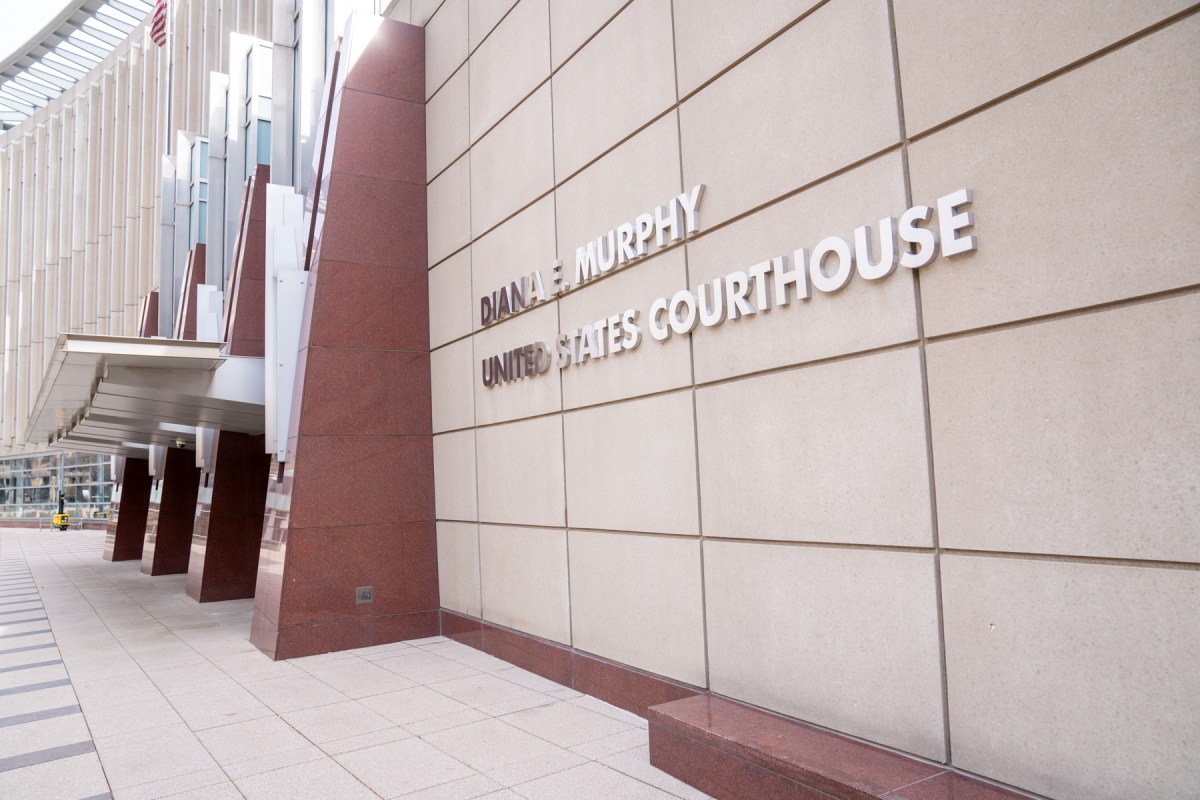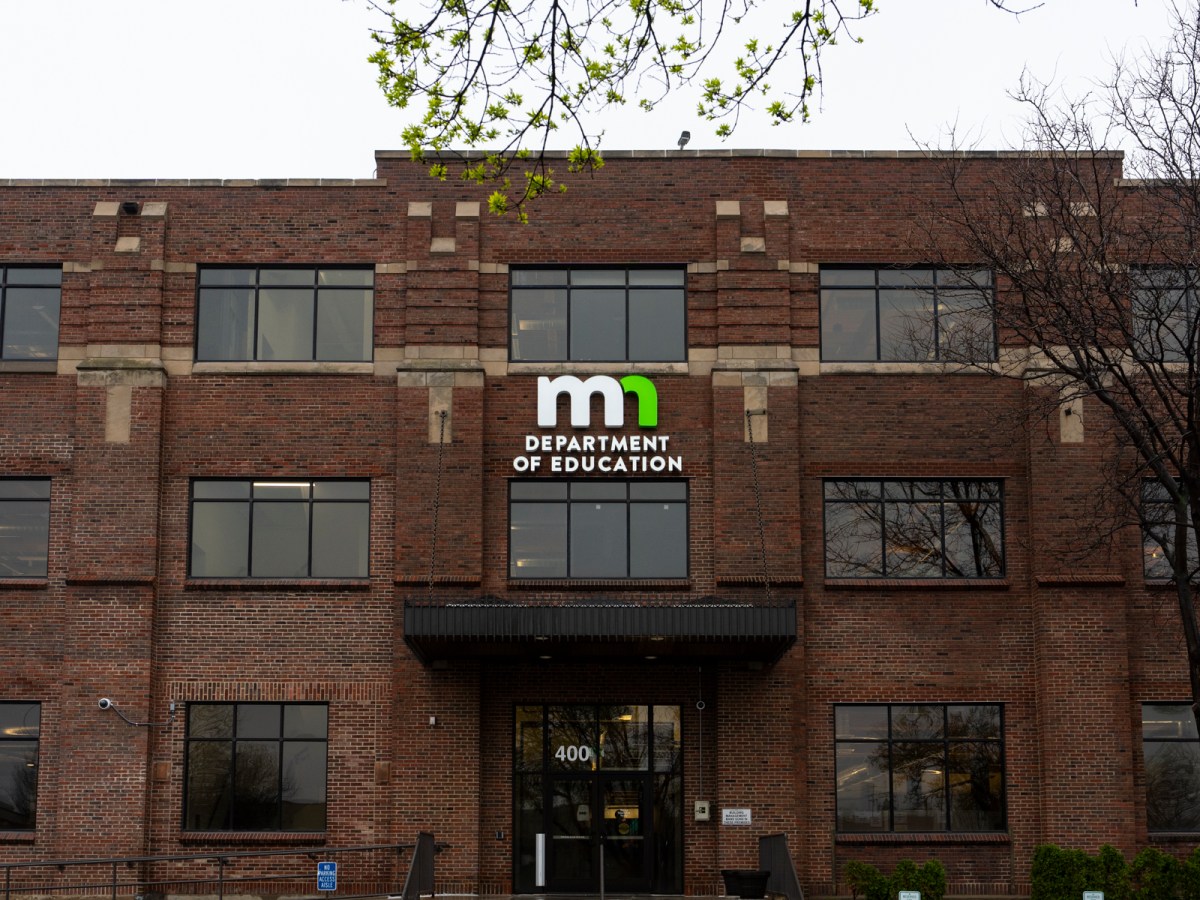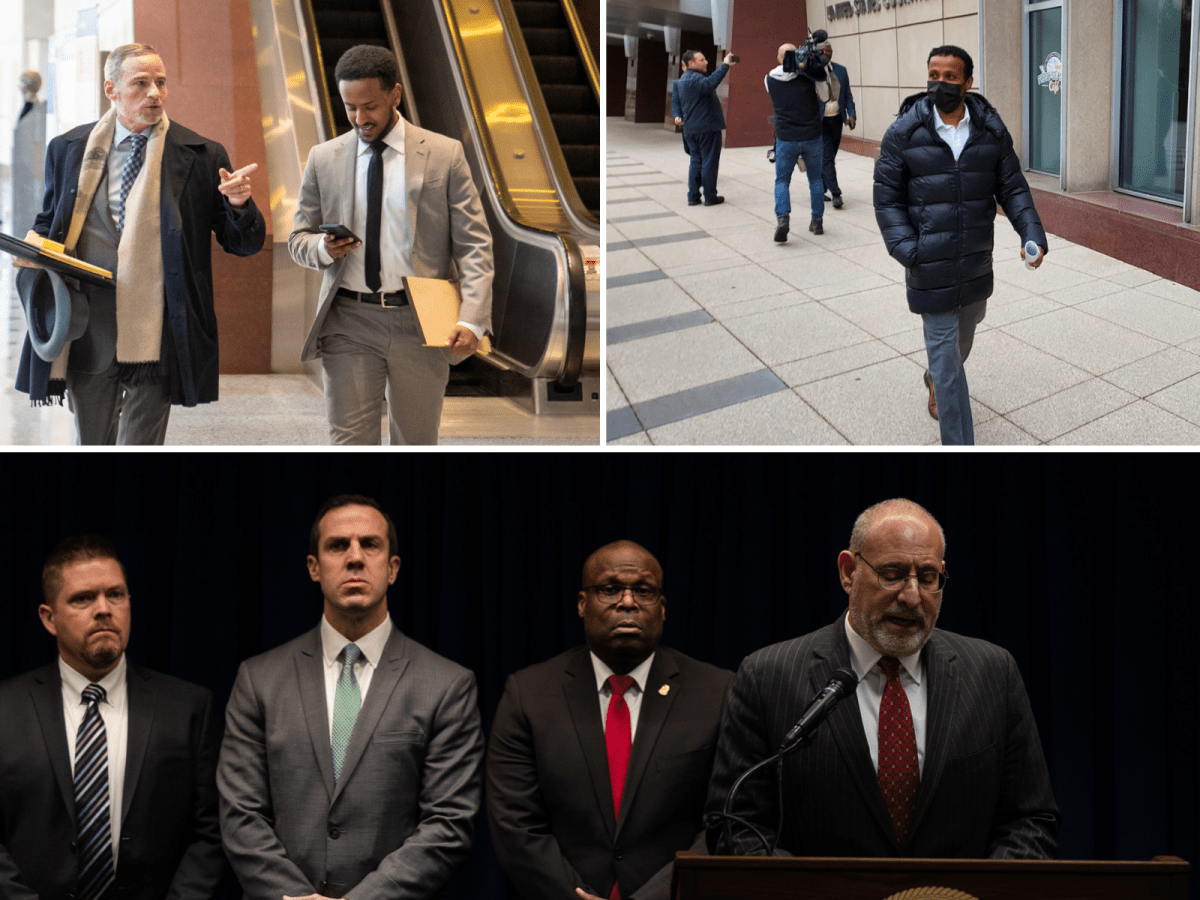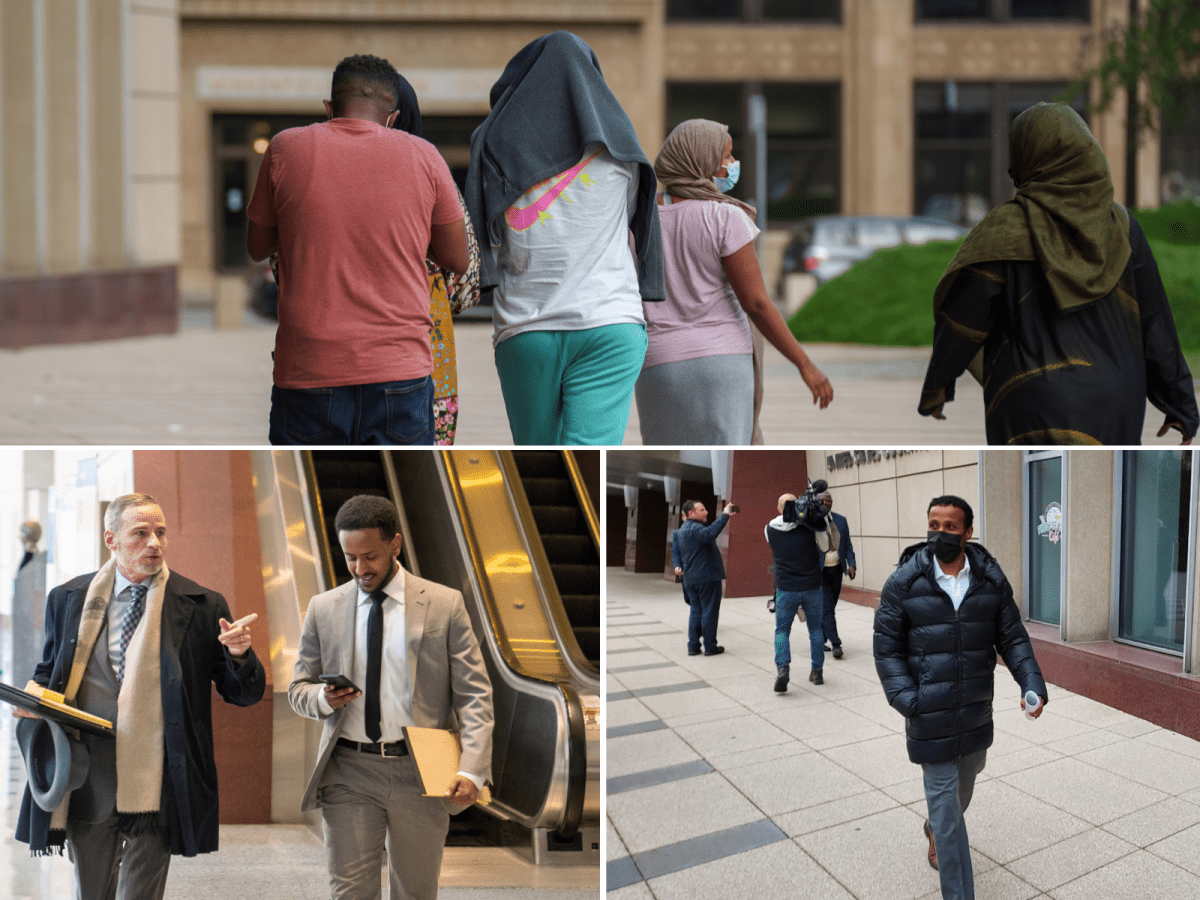Empire Cuisine, the Shakopee restaurant at the center of the ongoing Feeding Our Future trial, received $25 million in federal food money over a year and a half and spent just $3 million on food, according to an FBI forensic accountant who testified Tuesday.
Pauline Roase, the forensic accountant who examined the bank records associated with the case, described Empire Cuisine as a small storefront in a Shakopee strip mall and testified that the dollar figure was suspicious.
“That’s significantly less than it should be,” Roase testified. “I would expect more of it to be spent on food.”
Her testimony came in the fifth week of a joint trial of seven defendants who are accused of falsely reporting the number of meals they served to underprivileged children in order to receive reimbursement through federal child nutrition programs. They are charged with allegedly stealing $40 million, and face a total of 41 criminal charges, including money laundering, fraud, and bribery.
The trial is a part of a larger federal investigation of an estimated $250 million in alleged fraud. Seventy people have been charged in the overall case, and 18 of them have pleaded guilty.
Attorneys for the seven defendants in the trial have argued that there was nothing illegal to their clients making a profit from the federal food program during the pandemic. The dozens of waivers to regulations in the food program during the pandemic, they’ve argued, paved a way for their clients to respond to child hunger during a time when most businesses were shut down and the world was marked with uncertainty.
“The government decided to use the power of the American free enterprise system to meet these needs,” attorney Andrew Birrell, who is representing Abdiaziz Farah, a co-owner of Empire Cuisine and defendant in the trial, said during opening statements last month.
Roase said she began investigating possible child nutrition fraud shortly after the Minnesota Department of Education (MDE) tipped off the FBI in April 2021. MDE officials encouraged the FBI to investigate meal claims from Feeding Our Future and Partners in Quality Care, two nonprofits that sponsored hundreds of food sites seeking federal money to feed underprivileged children during the COVID-19 pandemic.
Both sponsor organizations paid out over $100 million each in federal child food-aid funds during 2021, Roase testified. She said she has examined 3,000 bank accounts, and that the investigation found more than 700 food sites that claimed food money from the federal government. Fifty of those sites are tied to the seven defendants in the trial, she said.
Soon after beginning her research, Roase found that $12 million had already been paid out to Safari Restaurant in Minneapolis in the course of a year — a red flag for her.
“It was definitely very concerning. It was very alarming, actually,” Roase testified. “The money for the restaurant had stopped during COVID, and then it was all [federal] food money coming in, millions and millions of dollars.”
Defendants in the Feeding Our Future case tied to Safari are not being tried in the current trial, and are expected to go to trial later this year. But Roase said her research led her to 12 restaurants associated with the alleged fraud, including Empire Cuisine and Market, which is owned by Abdiaziz and Mohamed Ismail, another defendant in the trial.
Empire Cuisine enrolled in the food program in April 2020, the same month Abdiaziz and Mohamed registered the restaurant with the state as a business. Roase called the timing suspicious.
For several months Empire Cuisine was registered as a food site through Partners in Quality Care.
By the fall of that year, MDE ordered for-profit restaurants to leave the food program. Empire Cuisine ended its role as a food site, but quickly expanded its role in the federal food program.
It did this by serving as the food vendor for about two dozen other food sites run by the ThinkTechAct Foundation, a nonprofit led by Mahad Ibrahim, another defendant in the case who is not a part of the current trial.
ThinkTechAct existed before the pandemic but remained relatively financially dormant until February 2021, when it ran food sites, Roase testified. That month, Partners in Quality Care started depositing hundreds of thousands of dollars into ThinkTechAct’s bank account. Roase said she found the activity suspicious because the bank account hadn’t seen any deposits or spent money in two years.
“I would expect to see some expenditures in this account,” she said.
In the overall investigation, Roase said she saw a pattern of the child nutrition funds flowing to food sites and food vendors, and then from there flowing to limited liability companies created by the same people associated with the food sites and food vendors. Roase said she found the pattern suspicious, especially since many of the limited liability companies were created just before first receiving federal food dollars.
“It was to hide the fact that they were not actually buying food,” Roase said of the limited liability companies. “It appeared they were concealing transfers to themselves. If they really wanted to, they could have transferred the money to their own accounts, but they didn’t do that. They went to the trouble of creating a new entity, starting a new bank account, and transferring to those.”
Much of this money examined in the overall investigation was instead used for personal purchases like luxury vehicles and real estate, Roase said.
Some of the money scrutinized in the trial was spent on food, Roase said, but even then, the food wasn’t always used for free meals for children. For example, Empire Cuisine spent $3.1 million on food between April 2020 and February 2022. But this included purchases for items like tea, coffee, and halal meat, which matched Empire Cuisine’s menu. The restaurant saw roughly $1 million in credit card revenue from food and item sales during the same period, Roase testified.
The $3.1 million doesn’t include large checks ThinkTechAct made to Empire Cuisine or Empire Enterprises, another organization Abdiaizz founded, with memos reading “[Child and Adult Care Food Program] food.” Roase spent time Tuesday showing a paper trial of how money from checks like these were deposited into bank accounts and then used for other purchases. In one case she showed money from similarly labeled checks was deposited and then wired to Kenya for a $725,000 investment from Abdiaziz in five four-bedroom apartments to be built in Nairobi.
“Was that money used to purchase food?” U.S. Assistant Attorney Joe Thompson asked.
“It was not,” Roase said.
“What was it used for?” Thomson asked.
“To purchase real estate in Kenya,” Roase said.
Testimony in the trial resumes Wednesday at 9 a.m.
Who’s on trial?
The defendants on trial are facing a total of 41 charges, including wire fraud, bribery and money laundering. They mostly worked for businesses that used Partners in Quality Care as a sponsor.
The defendants are:
- Abdiaziz Farah co-owned Empire Cuisine and Market. Federal prosecutors allege that the Shakopee-based deli and grocery store posed as a meals provider for several food sites, and defrauded the government out of $28 million. Abdiaziz allegedly pocketed more than $8 million for himself. He is also charged with lying on an application to renew his passport after federal agents seized his passport as part of their investigation.
- Mohamed Jama Ismail co-owned Empire Cuisine and Market. Mohamed is Abdiziz’s uncle. He is also owner of MZ Market LLC, which prosecutors allege was a shell company used to launder the stolen money. Mohamed allegedly pocketed $2.2 million. He previously pleaded guilty to passport fraud.
- Abdimajid Nur allegedly created a shell company, Nur Consulting, and laundered stolen money from Empire Cuisine and ThinkTechAct, other alleged shell companies. Abdimajid, who was 21 at the time of his indictment, allegedly pocketed $900,000.
- Hayat Nur allegedly submitted fake meal counts and invoices served at food sites. Court documents identify Hayat as Abdimajid’s sister. Hayat allegedly pocketed $30,000.
- Said Farah co-owned Bushra Wholesalers, which allegedly laundered money by claiming to be a food vendor that provided meals to food sites that then reportedly served children. Court documents identify Said as Abdiaziz’s brother. Said allegedly pocketed more than $1 million.
- Abdiwahab Aftin co-owned Bushra Wholesalers, and allegedly pocketed $435,000.
- Mukhtar Shariff served as CEO of Afrique Hospitality Group, and allegedly used the company to launder stolen money. He allegedly pocketed more than $1.3 million.





